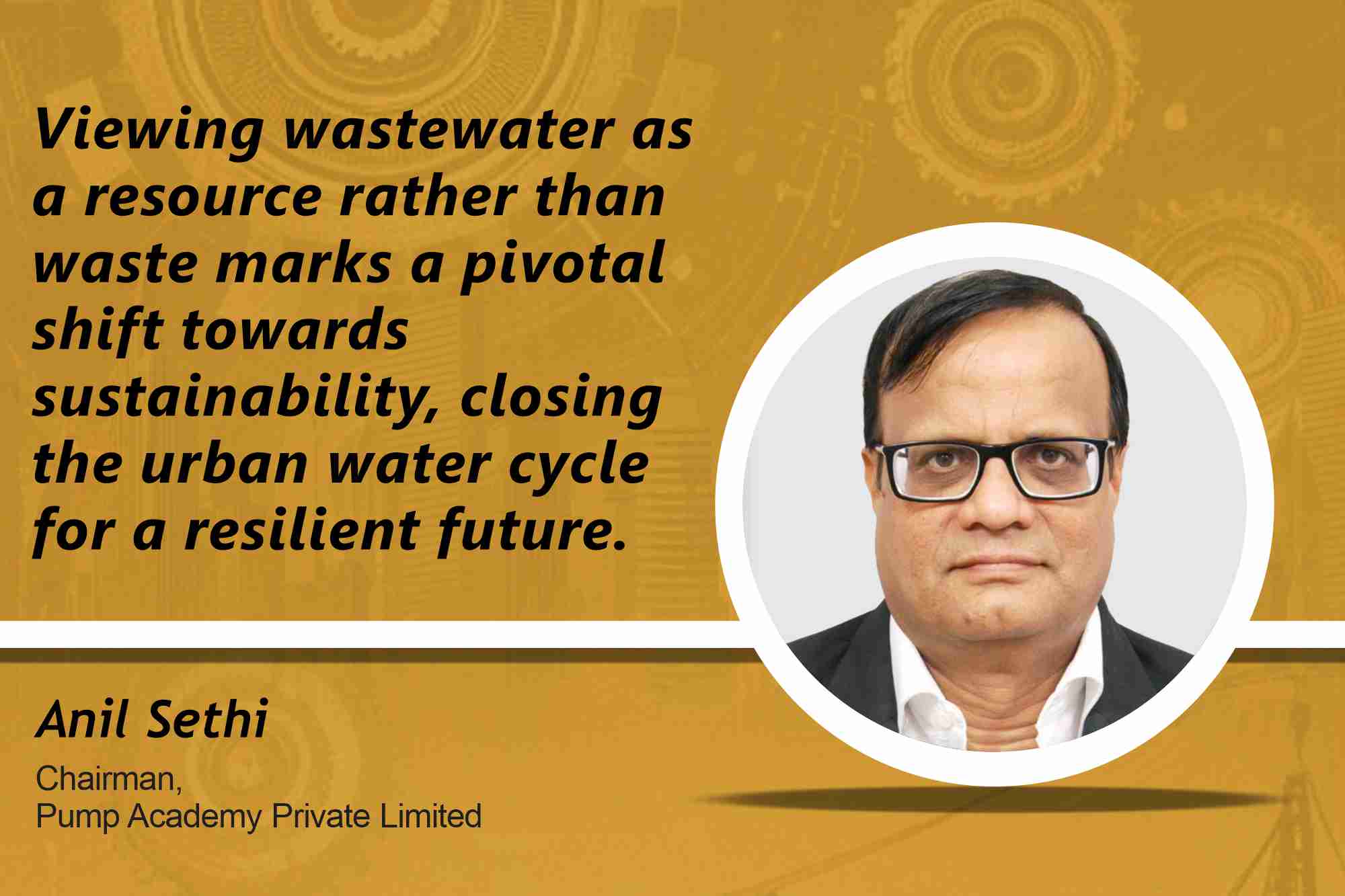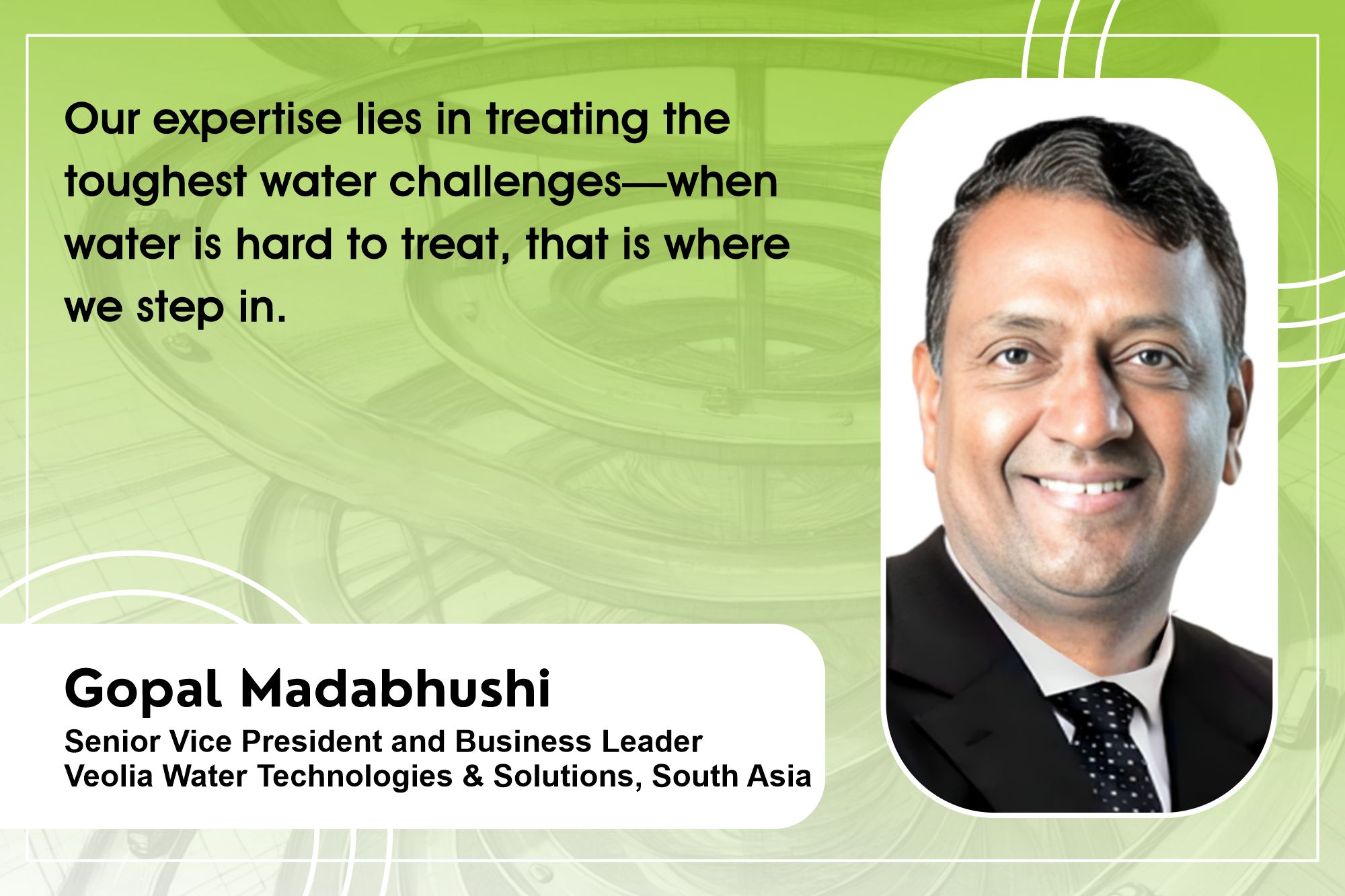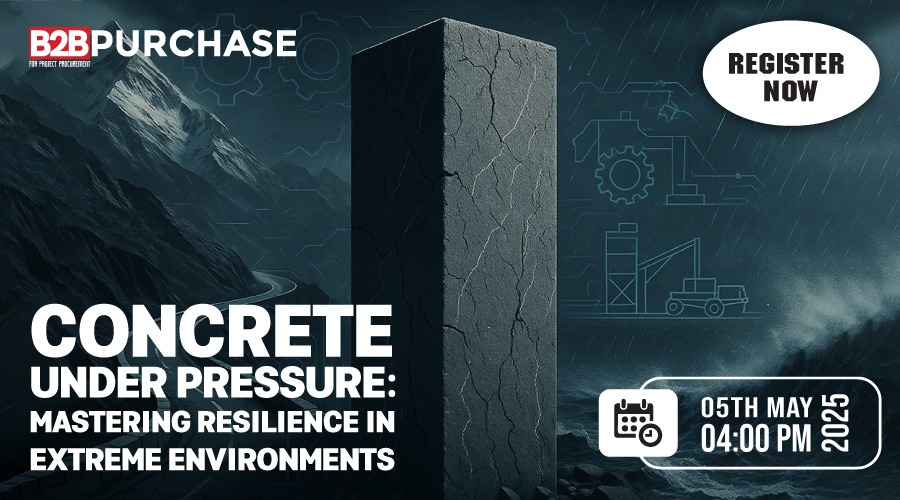Smart solutions for sustainable water management
By Staff Report | October 25, 2024 8:14 pm SHARE

As urban regions face increasing water difficulties, novel water management technologies are strengthening resilience, optimising efficiency, and promoting sustainability, hence facilitating the development of smarter, more resilient cities.
How are current advancements in water management technology enhancing resilience in urban infrastructure?
Water utilities use IoT devices, sensors, and data analytics to monitor water usage, detect leaks, and optimise real-time distribution. This results in more efficient water use and faster response times to concerns. Predictive maintenance, which uses AI and machine learning, is changing water infrastructure management by analysing real-time data to detect probable faults before they happen. It enables preventative maintenance and decreases the risk of costly breakdowns. Digital twin technology, which creates virtual replicas of water systems, allows planners to simulate different scenarios and enhance system performance, thereby enhancing long-term resilience. We’ve created iPUMPNET, a groundbreaking digital solution that uses AI and IoT to improve the efficiency, control, and monitoring of water pumps. This supports a smarter, more sustainable approach to water management with real advantages. These developments allow cities to manage their water supplies better, reduce pollution risks, and ensure sustainable water management.
What role do data analytics and AI play in optimising the efficiency of water and wastewater systems?
Smart water and wastewater management is more critical than ever. Advanced technologies such as data analytics and artificial intelligence (AI) are revolutionising how utilities function, shifting from problem-solving after they appear to problem prevention before it occurs, considerably improving system efficiency and resilience.
AI can reliably predict equipment failures, detect leaks, and forecast water demand by analysing vast data from sensors, weather patterns, and records. This enables utilities to execute timely maintenance, reduce water loss, and optimise distribution. AI enhances wastewater treatment processes, reduces system overflows, and boosts energy efficiency in pumping and treatment plants. These digital solutions provide essential long-term planning insights, assisting utilities in making smarter infrastructure development and resource allocation decisions.
How are sustainable practices and circular economy principles integrated into water and wastewater management solutions?
Sustainable practices and circular economy concepts transform how we manage water and wastewater, converting traditional ways into more environmentally friendly ones. With water scarcity affecting towns and businesses, water utilities now consider wastewater a resource rather than a waste. They are employing technologies to recover nutrients, energy, and clean water from sewage, which will assist in closing the urban water cycle.
Anaerobic digestion in wastewater treatment generates biogas from sludge, which can be utilised to power treatment plants using renewable energy. Nutrient recovery methods remove phosphate and nitrogen from wastewater to produce agricultural fertilisers, lowering the requirement for mined materials. Advanced treatments enable reused water for agriculture, industry, and even drinking in some nations, reducing the demand for freshwater supplies.
With the changing landscape of water resources, water utilities and industries must embrace circular and sustainable practices to improve their environmental performance, reduce reliance on freshwater, create new revenue streams, and build more resilient, resource-efficient systems for the future.
What are the key considerations for ensuring water infrastructure’s long-term durability and reliability?
Regular maintenance, the use of high-quality materials, and resilient design are all factors that contribute to water infrastructure’s long-term durability and reliability. Preventive maintenance is critical for identifying and addressing faults before they cause costly breakdowns.
Choosing durable, corrosion-resistant materials helps to extend the life of pipelines, pumps, and treatment facilities. Incorporating resilient design characteristics, such as redundancy and adaptability, ensures systems can resist extreme weather and changing environmental circumstances. Integrating smart technologies such as AI, ML, IoT, sensors, and data analytics enables real-time monitoring and predictive maintenance, improving overall system performance and longevity.
Our hallmark product, iPUMPNET, distinguishes itself in the water sector by providing advanced remote monitoring and control of pumping equipment. It transforms asset management by increasing water delivery, wastewater treatment, and irrigation efficiency. iPUMPNET increases productivity by up to 35 percent, reduces energy consumption by up to 25 percent, reduces water loss, lowers carbon emissions, and increases equipment lifespan by up to 50 percent, resulting in cost savings and increased sustainability.
How can funding be used to enhance the water infrastructure?
Innovation and new funding sources are critical to ensuring water infrastructure sustainability and resilience. Financial support is critical for improving water systems by upgrading outdated pipes, pumping stations, and treatment facilities, decreasing leaks, and enhancing water quality. Smart technologies enable effective water management through real-time monitoring, while green infrastructure solutions handle stormwater concerns. Investing and extending water sources assures long-term availability, and tailored initiatives can address specific contaminants while building resilience to climate change and cyber security threats.
Water utilities that invest intelligently may build robust, sustainable systems that meet present and future needs while safeguarding public health and the environment. We must also prioritise the development of skills, capacity, and a well-trained workforce to drive learning and innovation jointly.
For more information, visit: https://www.pumpacademy.in/
Cookie Consent
We use cookies to personalize your experience. By continuing to visit this website you agree to our Terms & Conditions, Privacy Policy and Cookie Policy.






































-20240213125207.png)

























